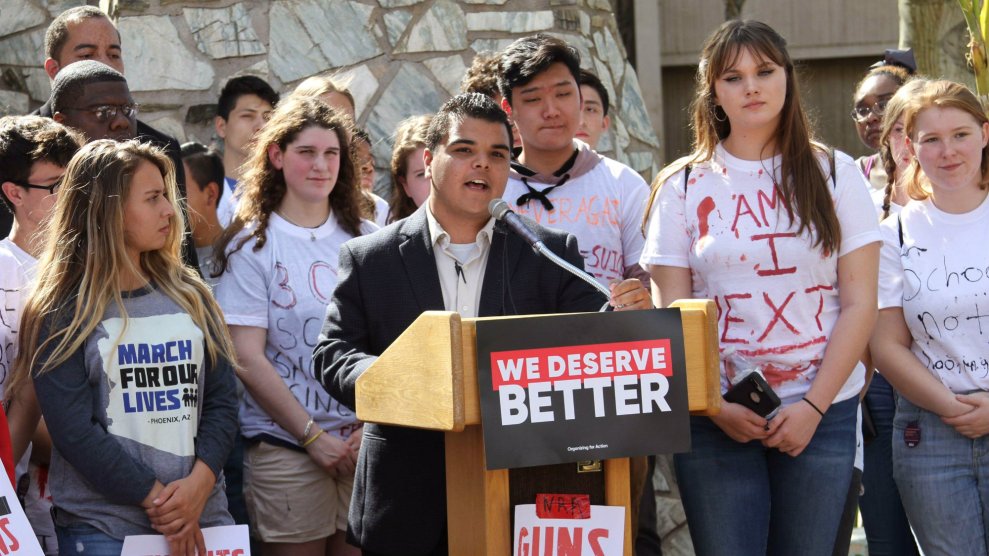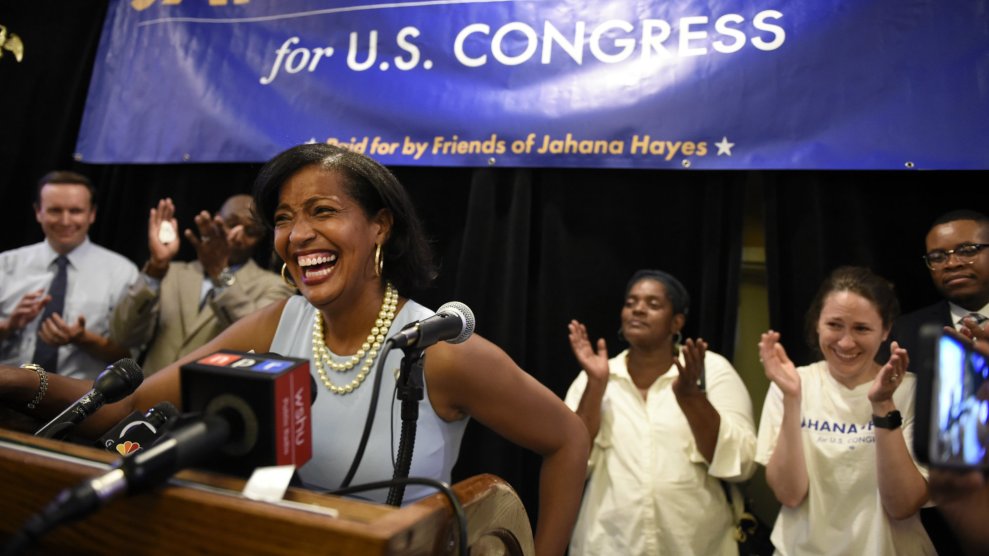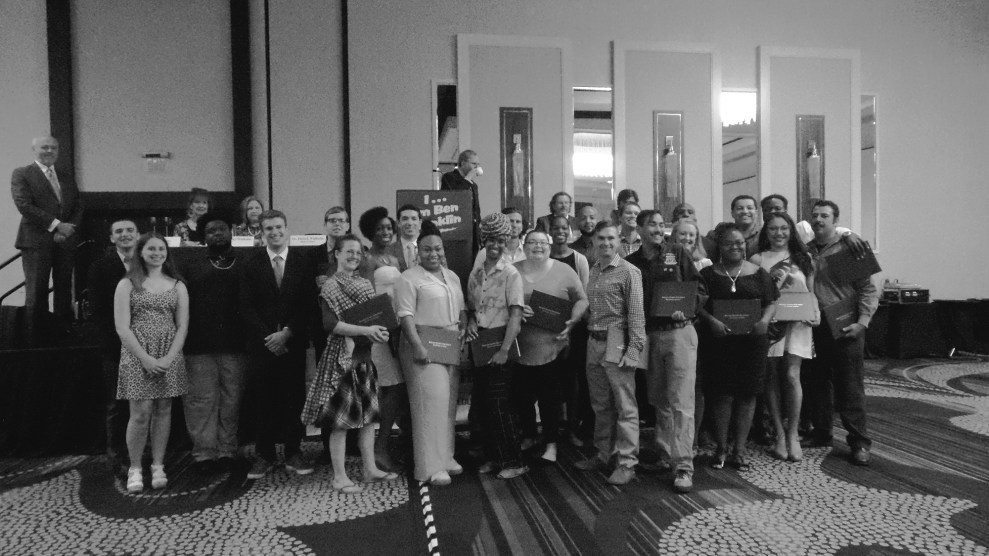
Students from the Arizona March for our Lives group at a rally in March. Courtesy of Jordan Harb
High schoolers across the country are leading voter registration efforts—even though some are too young to head to the polls themselves. Some of these new organizers, like 17-year-old Jordan Harb of Arizona, were energized to call for tighter gun laws after the Parkland school shooting in February, reports the Guardian. Harb and other students at March for Our Lives Arizona have led walkouts and, four months ago, staged a die-in at their state Capitol.
The teens are supported in part by outside organizations such as Everytown for Gun Safety. Before this year, Guardian reporter Lois Beckett says, it would have been unlikely that organizers would fund high-schoolers to register voters, but the activism of the Parkland school shooting survivors has inspired teens to help.
So far, Harb tells me, his Arizona group has registration events planned at 25 high schools in Phoenix, Tucson, and Flagstaff. Although registering voters shouldn’t be controversial, Harb says the group has been getting pushback from some schools. But that’s not stopping the teens.
“We are finding ways around it,” Harb says, “by either registering students under the table (without the administration knowing), or setting up a drive across the street.”
This week’s Recharge highlights high schoolers, a patrol officer’s impromptu act of kindness, and how one community fought for money to rebuild. Recharge is a weekly newsletter full of stories that will energize your inner hellraiser. Sign up at the bottom of the story.
-
Heartfelt gesture leads to promotion.
Patrol officer Celeste Ayala, who achieved unintentional fame when she breastfed a neglected, screaming baby while on duty, became Sergeant Ayala last week.The Argentine officer’s gesture was captured by a colleague and went viral. It prompted a visit from the provincial minister of security, who promoted her personally.
“This is the police force we are proud of, the police force we want,” said the minister, Cristian Ritondo.
In an interview with an Argentine news station, Ayala, who is breastfeeding her own 16-month-old daughter, said her actions came naturally: “I didn’t doubt it for a second.” (New York Times)
-
Compostable peanuts, and more.
Boulder, Colorado, has achieved a milestone—it has kept more than half of its waste from going into landfills. The success comes a year after the city passed a Universal Zero Waste Ordinance that required businesses to compost and recycle their trash.Spurred by the ordinance, businesses are finding different methods for reducing their waste. One store began recycling the plastic wrap used in packaging, inspiring other retailers to do the same. Another store researched ways its vendors could use biodegradable packing peanuts.
A city spokesperson, Alexis Bullen, says people in single-family homes are recycling and composting with vigor—and the city is working toward meeting its goal of diverting 85 percent of trash from landfills by 2025. But it still has a ways to go with apartment residents, whose recycling rates are far lower, and contamination remains a problem.
Bullen’s handy way to remember how to separate items: “If it was alive in your lifetime, it can go in compost.” (Colorado Daily)
-
Fighting for investment.
Mary Curry has spent decades advocating for her community, and at 87, she hasn’t stopped. When Fresno, California, got $70 million from the state to clean up pollution, Curry and members of her southwest Fresno neighborhood worked to make sure the money wasn’t only spent downtown.The area has heightened rates of asthma and some of California’s worst air quality, with pollution from millions of cars and five oil refineries wafting into Fresno—and sometimes staying there for days. The pollution, combined with the city’s poverty, led the state to make the award.
Initial plans for how the money would be spent quickly went awry—but Curry and other civic leaders worked with residents to define worthwhile ways to help their community: bike trails, pedestrian walkways, and the first satellite campus of a college for the neighborhood. Their plans prevailed. (Next City)
-
Bringing attention to prison reform.
“We have 1972 problems and 1872 jails…People have got to care in order for prison reform to come about,” Johnny Cash, the country music star and prison rehabilitation advocate, once told Congress.Now artist Shepard Fairey is hoping a 15-foot mural of Cash in Sacramento, California, will help spur efforts to fix the prison system in the nation with the highest incarceration rate in the world. Fairey, best known for his iconic portrait of Barack Obama during his presidential campaign, says he will donate a portion of the proceeds he earns from selling prints to #cut50, a prison reform advocacy organization.
Thanks to reader Dale Kasler for suggesting this article. (Sacramento Bee)
-
John McCain’s inspiring last message.
“We are citizens of the world’s greatest republic, a nation of ideals, not blood and soil,” the late senator wrote in his final message, read aloud by a tearful aide on Monday.“We weaken our greatness when we confuse our patriotism with tribal rivalries that have sown resentment and hatred and violence in all the corners of the globe,” the letter continued.
The senator urged readers to move past differences and to find strength in unity, offering hope despite challenging times. “We will come through them stronger than before. We always do.” (Mother Jones)
Have a Recharge story of your own or an idea to make this column better? Fill out the form below or send me a note to me at recharge@motherjones.com.










